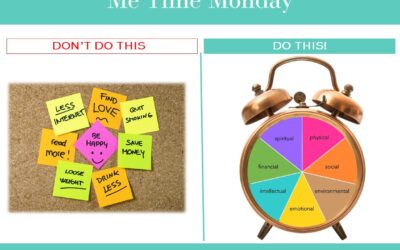 Relaxation is one of those words that are hard to find in the Caregiving Dictionary. With 65 million Americans caring for a loved one – 24 million of which are Sandwich Generation juggling children, career and caregiving all at once – finding the time to relax is like looking for a needle in a haystack – virtually impossible. Stress is the No. 1 complaint of most caregivers and in their book, So Stressed, Dr. Stephanie McClellan and Dr. Beth Hamilton recommend testing yourself on these questions to determine how stressed you may be:
Relaxation is one of those words that are hard to find in the Caregiving Dictionary. With 65 million Americans caring for a loved one – 24 million of which are Sandwich Generation juggling children, career and caregiving all at once – finding the time to relax is like looking for a needle in a haystack – virtually impossible. Stress is the No. 1 complaint of most caregivers and in their book, So Stressed, Dr. Stephanie McClellan and Dr. Beth Hamilton recommend testing yourself on these questions to determine how stressed you may be:
- Can you drop your shoulders?
- Is your brow furrowed?
- Is your tongue pressed against the top of your mouth?
- Is your breathing rapid and uneven?
- Is it hard to focus on things like reading this page – do you find yourself distracted thinking about aches or pains in your body?
If you answered “yes” to most of these, your muscles are tensed and poised for an attack. However, having that muscle tension in your body for a prolonged period of time will put pressure on your joints and reduce your blood flow which decreases your energy and eventually makes you feel fatigued and strained. According to the American Medical Association, roughly 80 percent of all doctor visits are stress-related with prolonged stress contributing to everything from ulcers to heart disease. Robert Sapolsky professor of neurobiology at Stanford University and author of Why Zebras Don’t Get Ulcers, says in his book that long-term stress can suppress the immune system and send it plummeting 40 to 70 percent below normal.
For caregivers the art of stress reduction through relaxation techniques is like speaking Latin – an almost forgotten, dead language. Following are 6 Tips to help you relax and find your bliss and most of them take only a few minutes per day:
1. Breathe
Dr. Herbert Benson, founder of the Mind/Body Institute at Massachusetts General Hospital in Boston and author of The Relaxation Response advises the following meditation technique that he prescribes doing twice daily:
- Choose a word, sound, short phrase or prayer that you will repeat continuously for 10-20 minutes.
- Sit still and comfortably.
- Close your eyes and relax your muscles.
- Focus your attention on your breathing, simply observing the in-and-out breaths.
- Begin repeating your word.
- As other thoughts may enter your stress-filled mind, don’t force them away or become annoyed, simply, gently ignore them and continue your repetitive word or phrase.
What he found is this simple exercise when done daily can help with a host of health issues including fatigue, hypertension, asthma, constipation, infertility, insomnia, rheumatoid arthritis, chest pain, allergies, allergic skin reactions and more. You should notice improvement in your health and stress levels in less than one month.
2. Visualize
The art of visualization is difficult with all the noise pollution we have in our lives. Constant interruptions by texts, emails, cell phones, crowded trains and traffic congestion all challenge you when you are trying to focus. If you are in the office or at home, take a little walk to a spot where you can sit and escape for a few minutes. Turn off your cell phone – it will only be a few minutes, and the world will not end in just those few minutes. Maybe do some window shopping, sit on a bench and people-watch, or just sit and close your eyes and imagine a place you would like to be – a hammock in the Bahamas, a gondola in Venice, a mountain top in the Himalayas.
3. Focus on one true thing
We are all juggling multiple activities: you have to pick the kids up from school, return that call at work, schedule the carpet cleaners, send that birthday card to your sister, get to the cleaners before they close – and on and on. Take five minutes all to yourself and just zone out. Read a magazine, go for a walk and listen to the rustle of the tree leaves or the tweeting of the birds, plug into your iPod or radio station and sit or drive around for a few minutes with no destination in mind. Really think about the song lyrics and how they move you. By focusing on one sensory activity – seeing, hearing, tasting, touching — your brain relaxes and sends impulses to your other muscles to relax as well.
4. Try yoga
These relaxation activities are not just for the new age lovers – there are real health benefits to performing some type of yoga just a few minutes a day. Yoga is not a trend, it started in India more than 5,000 years ago, and more than 11 million Americans practice some type of yoga. Because yoga incorporates breathing techniques, it not only helps relax your body but it also has the meditative benefits of relaxing your mind. Yoga also gives you better flexibility – many first-time yoga participants noticed a 35 percent improvement in flexibility after just eight weeks of twice weekly yoga classes. It releases the lactic acid in your muscles which contributes to tension, stiffness, pain and fatigue, and it can lower your heart rate as well as your blood pressure, which many doctors believe can be one solution to helping you prevent heart disease.
5. Massage
Massage therapy is an indulgence with significant health benefits. According to the Mayo Clinic, massage can lower blood pressure, boost immunity, and provide therapeutic effect for those suffering from MS and cancer. If you do not have time for a professional masseuse, you can also try giving yourself a massage. Darrin Zeer, author of Lover’s Massage and Office Yoga, advices placing both hands on your shoulders and neck. Squeeze with your fingers and palms. Rub vigorously; try to keep your shoulders relaxed. Next, wrap one hand around the other forearm, squeeze the muscles with thumb and fingers moving up and down from the elbow to the fingertips and back again. Repeat with the other arm
6. Me Time Monday℠–
While many of these techniques can and should be done for a few minutes each day, use the Caregiving Club Me Time Monday technique to check in with yourself every Monday to see what you have done to take care of you. Did you grab a few minutes just for you last week? What are your plans this week for finding your Me Time? Check out the Me Time Monday video tips in support of the Caregiver’s Monday campaign and make sure to schedule your relaxation time – it will help you avoid the burn-out and stress that plagues caregivers.
Sherri Snelling is writing a book on celebrity caregivers and the lessons of love and caring that will be published in February, 2013.




0 Comments